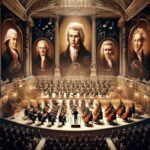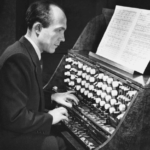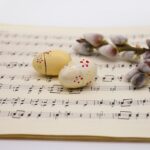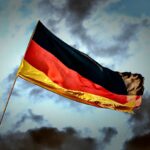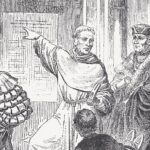October 17, 1707
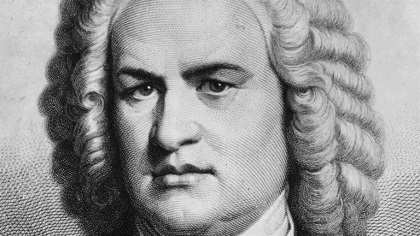 Shortly after accepting a position as organist at St. Blasius’s in Germany, composer Johann Sebastian Bach marries his second cousin, Maria Barbara Bach. The couple had seven children together, but only four survived to adulthood.
Shortly after accepting a position as organist at St. Blasius’s in Germany, composer Johann Sebastian Bach marries his second cousin, Maria Barbara Bach. The couple had seven children together, but only four survived to adulthood.
October 17, 1778
Death of Johann Hummel in Weimar, Germany. The composer, Hummel, studied in Vienna with Mozart. During his studies he lived for two years in Mozart’s house. He also took further instruction later with Haydn and Salieri. He composed 9 operas, 3 masses, piano works and chamber music.
October 17, 1813
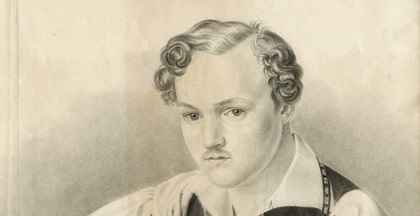 Birth of Georg Büchner in Goddelau, Germany. In his short life (death in 1837) and relatively small number of works, Büchner achieved a central position in the history of German literature. His radical political pamphlet, Der hessische Landbote (1934), produced while still a student, necessitated his flight from Germany. His drama, Dantons Tod (1835), and his comedy, Leonce und Lena (1836) are filled with a unique social criticism. His fragment, Woyzeck (1836), likewise rich in social criticism, became the text of the opera by Alban Berg, Wozzeck (1925) and a film by Werner Herzog (1978).
Birth of Georg Büchner in Goddelau, Germany. In his short life (death in 1837) and relatively small number of works, Büchner achieved a central position in the history of German literature. His radical political pamphlet, Der hessische Landbote (1934), produced while still a student, necessitated his flight from Germany. His drama, Dantons Tod (1835), and his comedy, Leonce und Lena (1836) are filled with a unique social criticism. His fragment, Woyzeck (1836), likewise rich in social criticism, became the text of the opera by Alban Berg, Wozzeck (1925) and a film by Werner Herzog (1978).
October 17, 1815
Birth of Emanuel von Geibel in Lübeck, Germany. Geibel was a poet and member of the “Gesellschaft der Krokodile”, a society of writers assembled in Munich by Maximilian II of Bavaria. Titles of characteristic poetry by Geibel include Der Mai ist Gekommen, Wer recht in Freuden wandern will, Und dräut der Winter noch so sehr and Heroldsrufe.
October 17, 1887
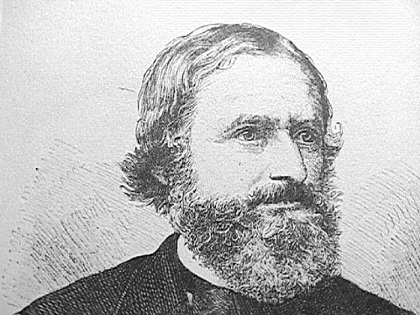 Death of Robert Gustav Kirchhoff in Berlin, Germany. The physicist, Gustav Kirchhoff, with Robert Bunsen, developed the theory of spectrum analysis. He is also the originator of “Kirchhoff’s laws” in electricity. Kirchhoff and Bunson worked together as professors at the University of Heidelberg. Kirchhoff ended his career as professor of mathematical physics at the University of Berlin.
Death of Robert Gustav Kirchhoff in Berlin, Germany. The physicist, Gustav Kirchhoff, with Robert Bunsen, developed the theory of spectrum analysis. He is also the originator of “Kirchhoff’s laws” in electricity. Kirchhoff and Bunson worked together as professors at the University of Heidelberg. Kirchhoff ended his career as professor of mathematical physics at the University of Berlin.
October 17, 1900
Kaiser Wilhelm II appoints Bernhard Fürst von Bülow as imperial chancellor.
October 17, 1933
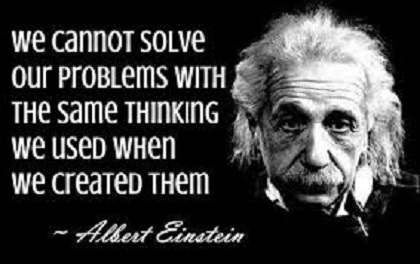 Albert Einstein, a German scientist, arrives in the United States.
Albert Einstein, a German scientist, arrives in the United States.
October 17, 1938
Death of the Social Democrat and Marxist, Karl Kautsky, in Amsterdam. He had fled to the Netherlands due to the rise of the Nazis in his native Austria.
October 17, 1951
Death of Bernhard Kellermann in Potsdam, Germany. Kellermann was a journalist and novelist. Among his novels are, Das blaue Band (1938) which tells the story of the Titanic, Der 9. November (1921) which narrates the insurrection of 1918 and his best known novel, a novel of a technological utopia, Der Tunnel (1913).
October 17, 1977
West German commandos take back a hijacked Lufthansa plane in Mogadishu, Somalia, free all 86 hostages and kill 3 of the 4 hijackers.
October 17, 1996
Death of Berthold Goldschmidt in London (born in Hamburg, Germany). He had just begun to establish a reputation as a composer when the Nazis came to power and his work was banned. He fled to England where he was relegated to obscurity until the 80’s when there was renewed interest in his work.
October 17, 1998
Elfriede Jelinek, a feminist writer in Austria, is presented with the Büchner-Prize from the German Academy for Language and Literature (Deutsche Akademie für Sprache und Dichtung). Noted works by Jelinek include “Lust”, “Die Kinder der Toten” and “Sportstück” (reported at the time of selection in May, 1998).
October 17, 1999
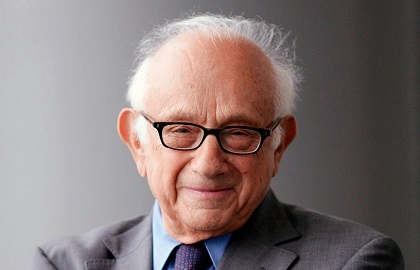 The historian Fritz Stern is given the Peace Prize of the German Book Association. The ceremony is held at the Church of St. Paul in Frankfurt am Main.
The historian Fritz Stern is given the Peace Prize of the German Book Association. The ceremony is held at the Church of St. Paul in Frankfurt am Main.
